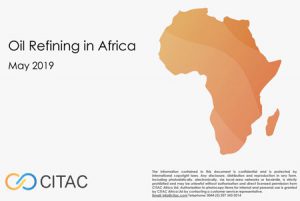Where is Africa’s oil refining industry going ?
Invest or convert to storage: such are the two main choices facing many of Africa’s 46 operational oil refineries over the next 5-10 years amid mounting pressure to improve product quality across the continent.
Refineries will be granted ‘grace’ periods to meet tighter specifications but such waivers are unlikely to extend much beyond 2025. A soon-to-be-published study will likely set end-2023 as the deadline for refineries in West Africa’s ECOWAS region to comply with 50ppm gasoline and gasoil.
Eighteen African refineries have been mothballed or converted to storage over the years, and more could follow, creating growing import opportunities in some places. In others, investment in new units—or complete greenfield refineries (Nigeria and Uganda, among others)—will squeeze the import business.
A handful of African refineries have already laid out their stall, investing in debottlenecking, pre-flash units, desulphurisation, catalytic reforming, benzene extraction and other technical improvements over the past couple of years.
Other refineries are at varying stages—project identification, pre-feasibility, FEED studies, financial close, EPC—of their journeys to major capital expenditure.
Many, however, have still not decided upon their strategic direction. Financing challenges, regulatory uncertainty and, in some cases, urban sprawl, are just a few of the factors holding refineries back.
What is clear is that the next 5-10 years will see more refinery investment, more storage investment and further ownership reshuffles—including at predominantly state-owned plants.
 First published in 2005 and now in its 10th edition, CITAC’s Oil Refining in Africa Report helps traders, oil companies, banks, investors, engineering companies, technology providers, IFIs, ministries, regulators and other stakeholders map what lies ahead for Africa’s refining sector by dissecting the specific technical, political, economic and financial realities of each plant.
First published in 2005 and now in its 10th edition, CITAC’s Oil Refining in Africa Report helps traders, oil companies, banks, investors, engineering companies, technology providers, IFIs, ministries, regulators and other stakeholders map what lies ahead for Africa’s refining sector by dissecting the specific technical, political, economic and financial realities of each plant.
CITAC’s Oil Refining in Africa Report is based on 20 years of extensive on-the-ground experience of the African downstream. Since 2006, CITAC has also been the retained consultant to the African Refiners and Distributors Association.
For more information on CITAC Oil Refining in AfricaSubscribers : log in and access CITAC report services
